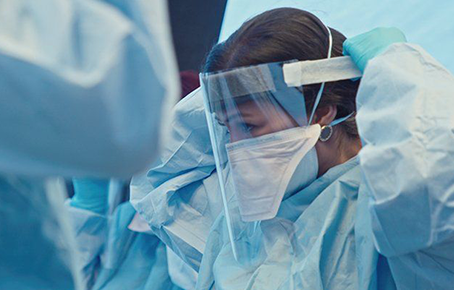
- Home
- news
New Infrastructure for Telemedicine: How 5G Technology Empowers Cross - border Collaboration of Minimally Invasive Surgical Instruments?
With the continuous progress of technology, the application of 5G technology in the medical field is becoming more and more extensive. Especially in the cross - border collaboration of minimally invasive surgical instruments, 5G technology is playing an increasingly important role. This article will explore how 5G technology empowers the new infrastructure of telemedicine from three aspects: the wholesale of arthroscopic minimally invasive surgical instruments, the export of medical devices, and the industry trends of minimally invasive surgery.
The Gospel for Obese Patients: How Ultra - Fine Surgical Forceps and Intelligent Irrigation Systems Conquer the Challenges of Deep - seated Surgeries?
With the rapid development of modern medical technology, minimally invasive surgery has become the preferred treatment for many diseases. However, for obese patients, traditional minimally invasive surgeries face numerous challenges. Obesity not only increases the difficulty of surgery but also may bring a higher risk of complications. Fortunately, with the progress of technology, the emergence of new medical devices such as ultra - fine surgical forceps and intelligent irrigation systems has brought new hope to minimally invasive surgeries for obese patients.
The "Millimeter - Level Revolution" in Gynecological Minimally Invasive Surgery: The Collaborative Innovation of Uterine Manipulators and Leak - Proof Specimen Bags
With the continuous progress of medical technology, gynecological minimally invasive surgery has become an important part of modern medicine. In recent years, the proportion of gynecological minimally invasive surgeries globally has exceeded 65%. This trend not only reflects the widespread application of minimally invasive techniques but also gives rise to the demand for refined and specialized instrument designs. This article will explore the collaborative innovation of uterine manipulators and endoscopic specimen bags in gynecological minimally invasive surgery and how they have promoted the "millimeter - level revolution."
The "Zero - Infection" Era: How Disposable Trocars Are Redefining the Infection Control Standards in Laparoscopic Surgery?
In the modern medical field, the rapid development of minimally invasive surgery techniques has brought less trauma and faster recovery times for patients. Laparoscopic surgery, as a crucial part of minimally invasive surgery, has gradually become the mainstream trend in surgical operations due to its advantages such as small trauma, mild pain, and quick recovery. However, how to effectively control the infection risk during surgery has always been a key concern in the medical community. In recent years, the emergence of disposable trocars has brought a revolutionary change to the infection control in laparoscopic surgery.
From Open to Minimally Invasive: How Intelligent Manufacturing Reshapes the Efficiency of the Surgical Instrument Supply Chain?
With the continuous progress of medical technology, the surgical methods are also undergoing a transformation from traditional open - surgery to minimally invasive surgery. This transformation not only improves the safety of surgery and the recovery speed of patients but also promotes the high - efficiency and intelligence of the surgical instrument supply chain. This article will explore how intelligent manufacturing plays a key role in this process and improves the supply chain efficiency of disposable minimally invasive surgical instruments.













